University of Ghana, Executive Women’s Network Discuss Mentorship, Leadership and Gender Equity Initiatives
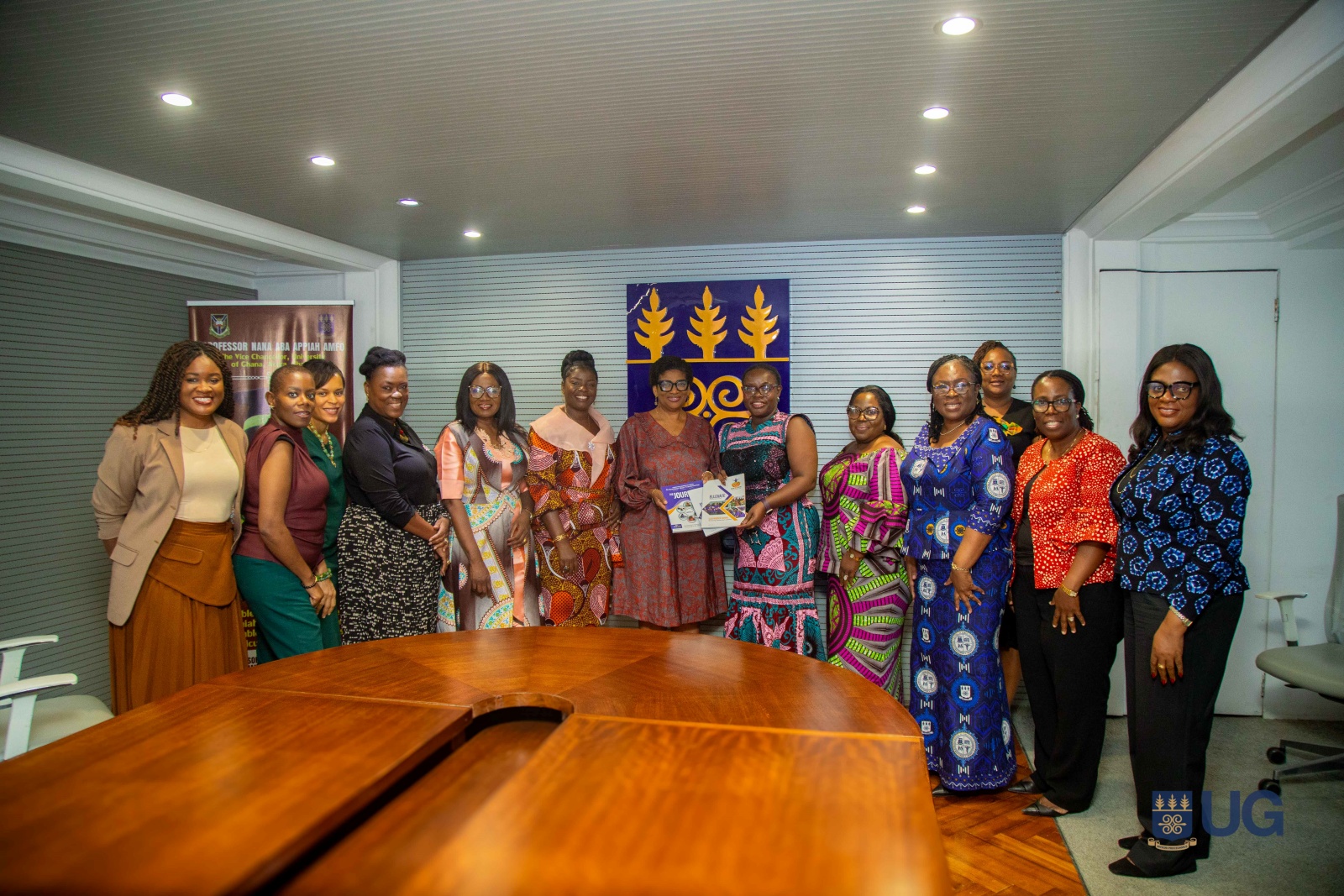
The leadership of the Executive Women’s Network (EWN) visited the University of Ghana, opening conversations around a structured partnership designed to inspire and prepare young women for leadership. Speaking on behalf of the delegation, Mrs. Janet Sunkwa-Mills outlined a number of initiatives that could directly benefit students of the University of Ghana.
These include the introduction of specific programmes on Women in Leadership to prepare young ladies before they assume executive roles, as well as mentorship opportunities that would connect female students with experienced women executives. She also highlighted the importance of networking events that would expose students to industry leaders, giving them the opportunity to build confidence, expand their horizons and envision themselves in leadership positions.
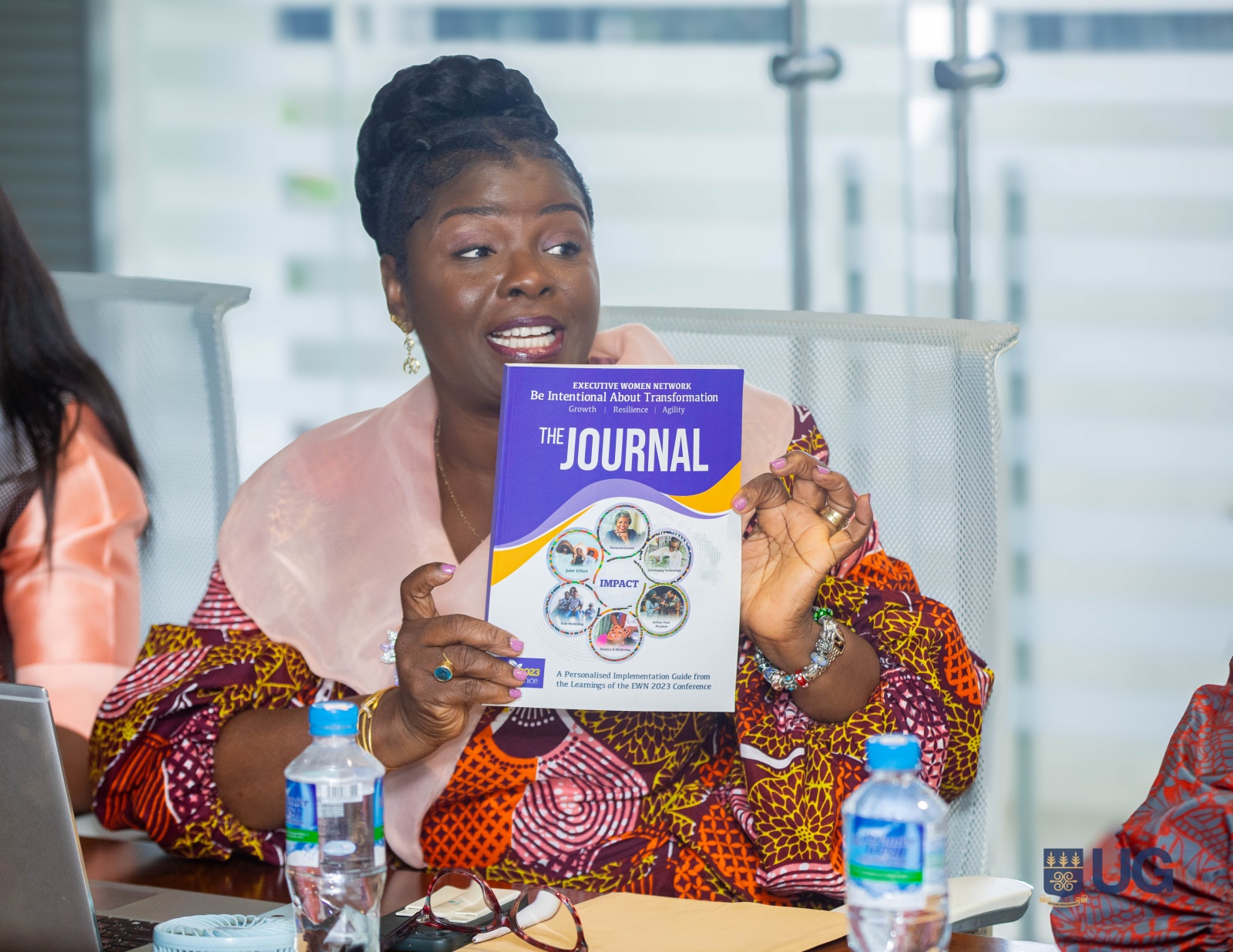
EWN further proposed joint research projects with the University to track gender equity and monitor progress on the Affirmative Action Law, stressing the importance of using data to strengthen advocacy and policy influence.
The expected outcomes of this collaboration include the development of a stronger leadership pipeline for young women, data-driven advocacy that highlights progress and challenges in gender equity, and a closer collaboration between the University and industry leaders. These outcomes align directly with the Network’s vision to see more women thrive in leadership positions at both local and international levels.
Receiving the team, Vice-Chancellor Prof. Nana Aba Appiah Amfo noted that this partnership fits perfectly with the University’s own goals of nurturing well-rounded leaders. She expressed her confidence that the collaboration with EWN would help unlock potential and prepare students for greater responsibilities in the future. Looking ahead, she shared her hope that by next academic year, some of the specific programmes on Women in Leadership would already be running, giving female students practical experiences and mentorship to prepare them for life after school.
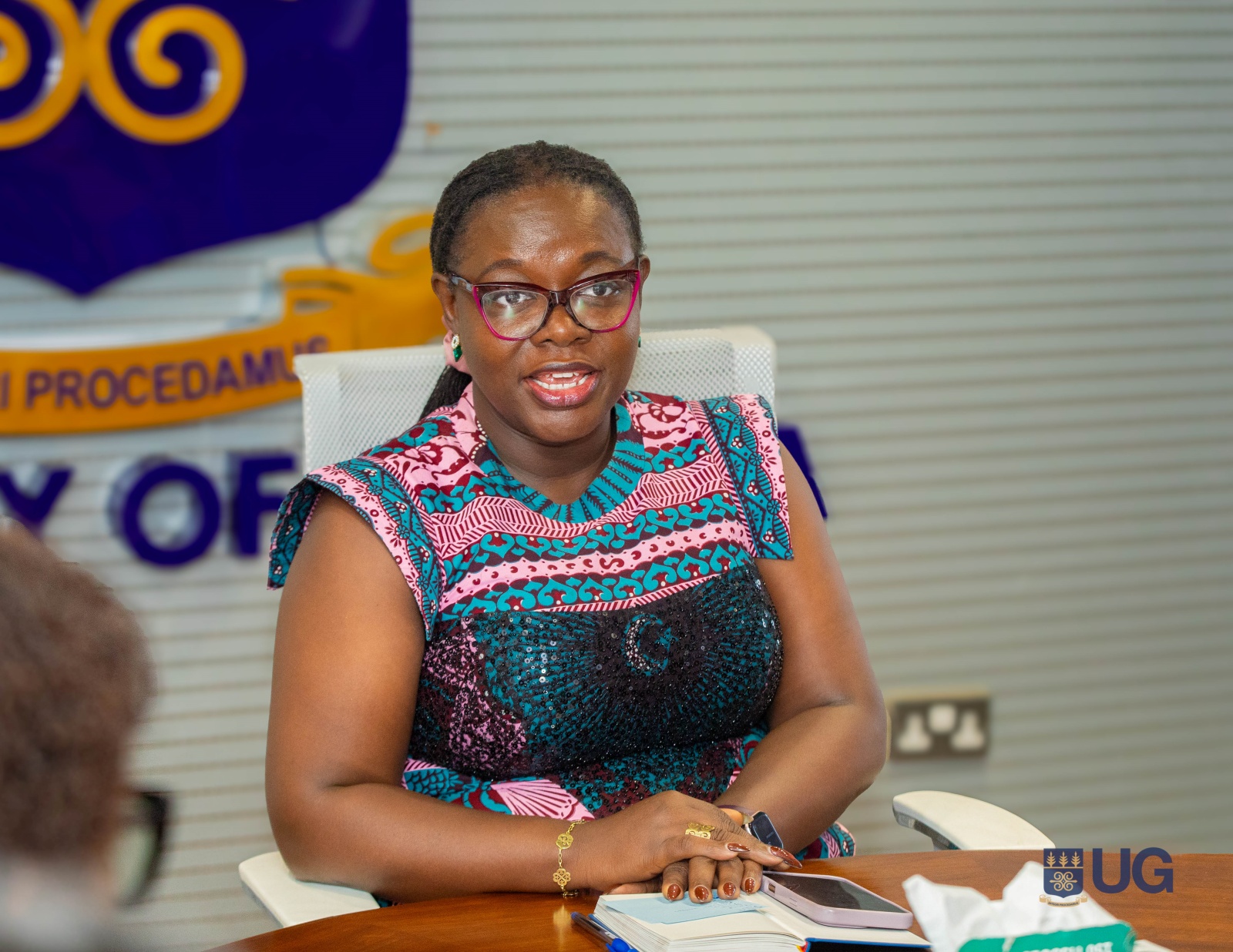
Ms. Yvette Adounvo Atekpe, a member of the University of Ghana Governing Council, who accompanied the EWN delegation, reiterated the importance of networking and exposure. She explained that while the University offers strong academic training, students often lack opportunities for internships and mentorship during their time in school.
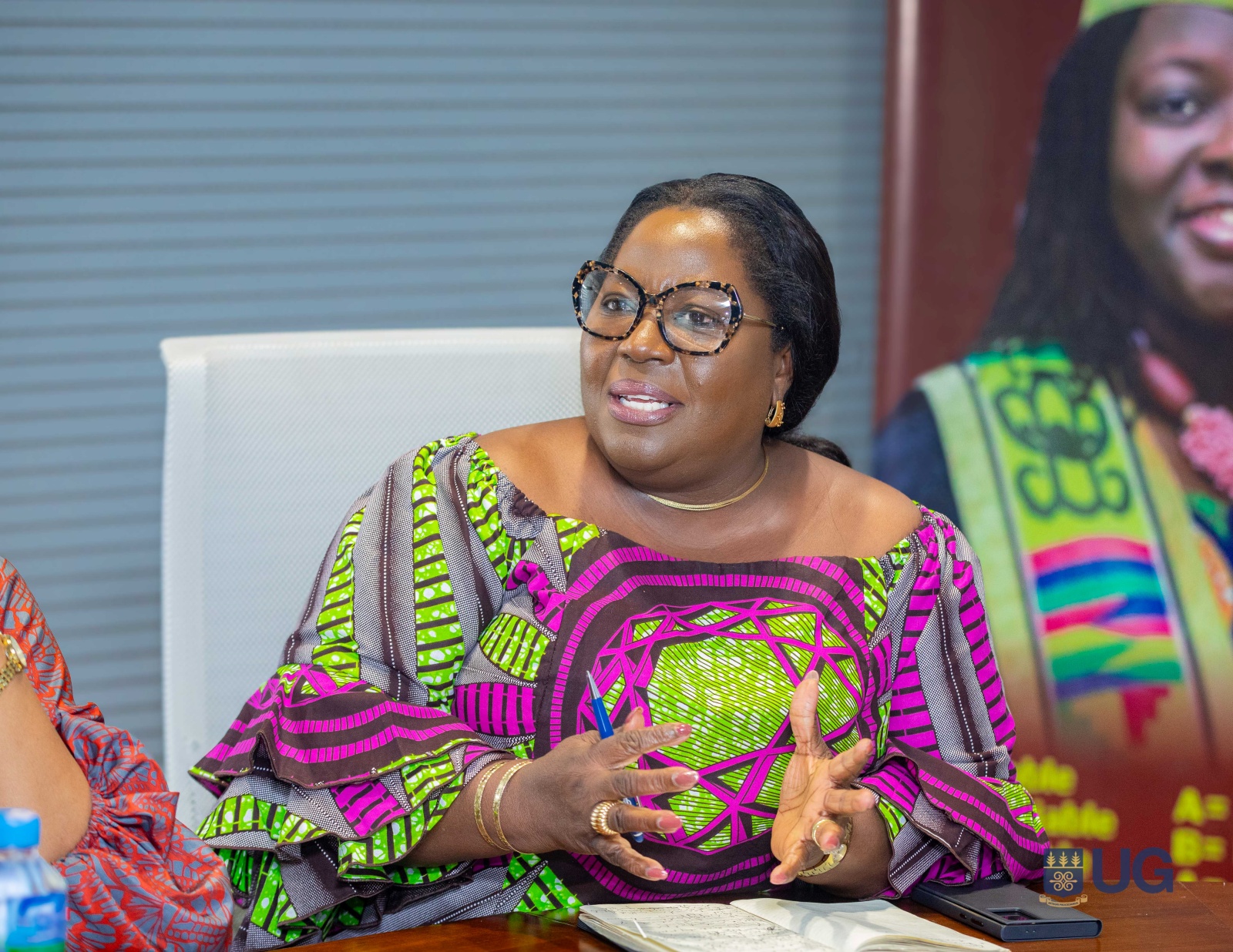
Ms. Eva Esselba Mends, Senior Public Finance Management Expert at the Legon Leadership Academy, remarked that the collaboration aligns closely with the Vice-Chancellor’s vision of establishing the Leadership Academy. She said it was encouraging to know that there are women who are deliberate about raising others into leadership roles, adding that this is one of the passions of the Vice-Chancellor and a clear area of opportunity for partnership.
On her part, Registrar, Mrs. Emelia Agyei-Mensah added that partnering with EWN will provide young women with role models who have overcome similar challenges. “If we have been able to do it, then they too can,” she said, expressing her hope that the partnership would instill greater confidence in students.
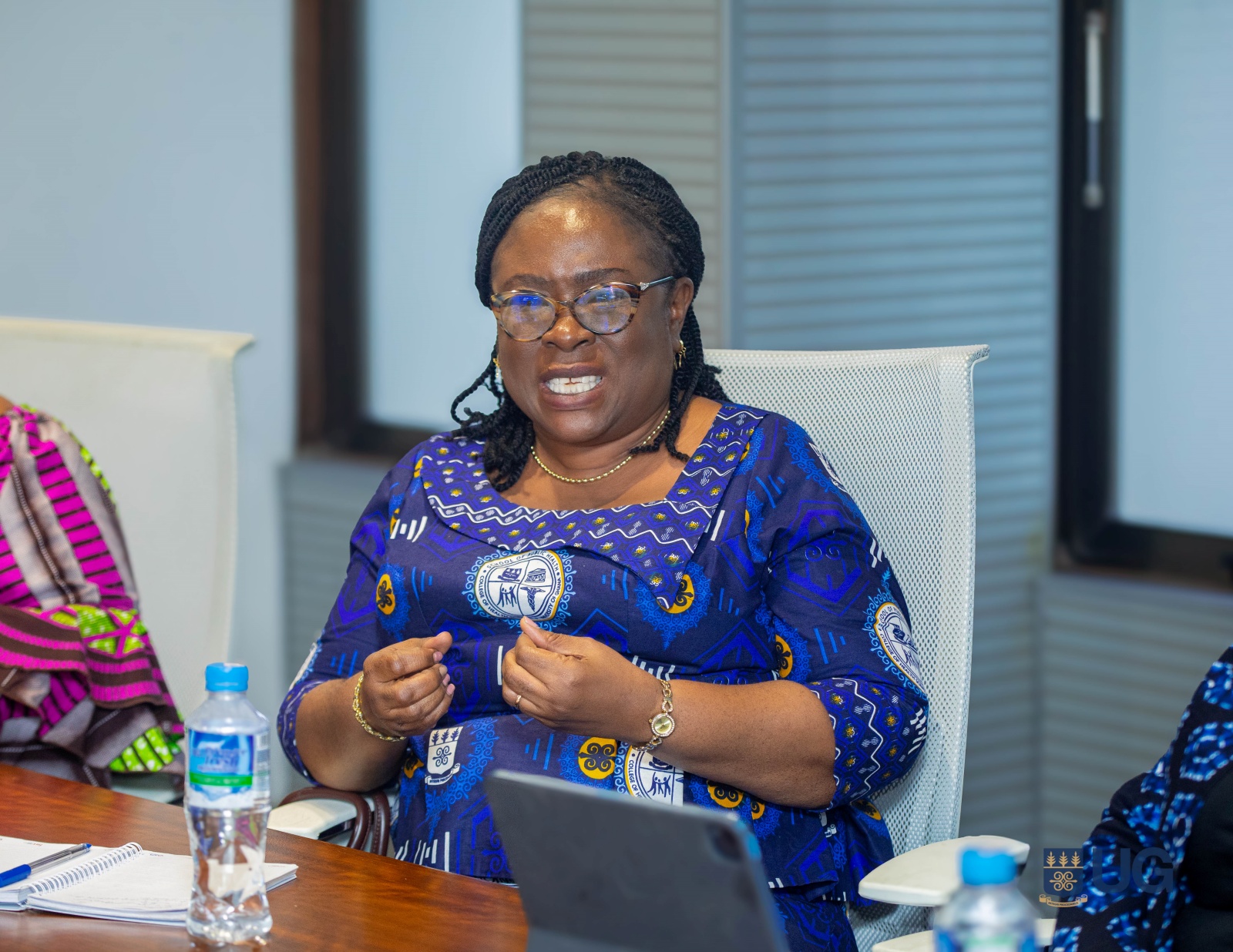
Touching on the joint research projects on tracking the implementation of the Affirmative Action Law, Director of the Centre for Gender Studies and Advocacy (CEGENSA), Prof. Deborah Atobrah, affirmed that the Centre is poised to support as it has already started work in that vein. She cited the Centre’s commemoration of the one year anniversary of the passage of the Law with a policy roundtable dialogue.
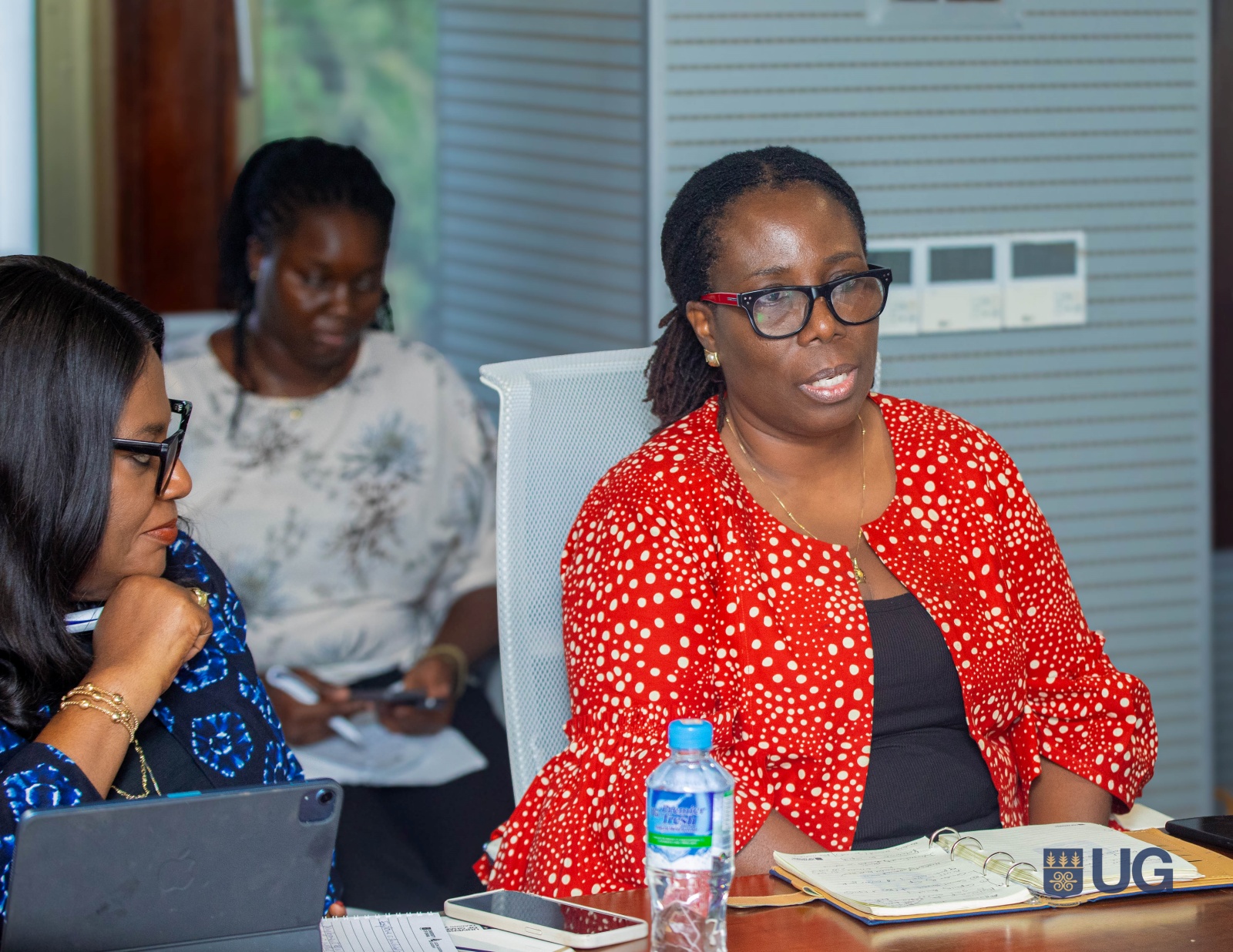
The EWN delegation also included Pearl Esua-Mensah, Paulette Watson MBE, Dr. Stella Agyenim-Boateng, Yvonne Ocloo, Edinam Adjei-Sika, Quiana Canfor-Dumas and Anthonia Tony-Dibie.
This partnership ties in boldly with the University’s Strategic Priorities, particularly Transformative Student Experience, where students are equipped, supported and confident enough to lead with impact. It also speaks to the fourth Strategic Priority, Engagement and Partnerships, which enjoins the University to build strategic partnerships with local and international organisations for the benefit of faculty, staff and students.